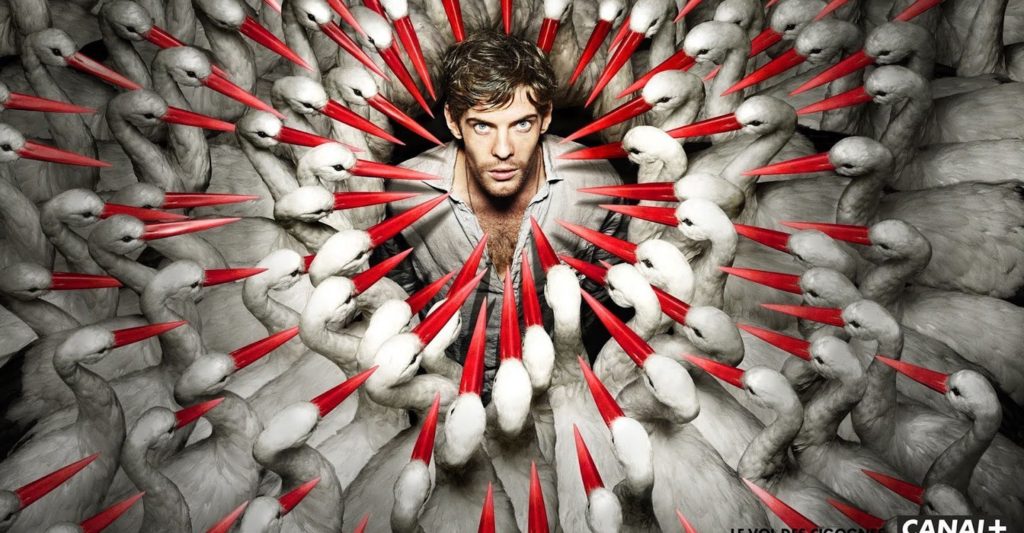Flight of the Storks
Gloomy Flight
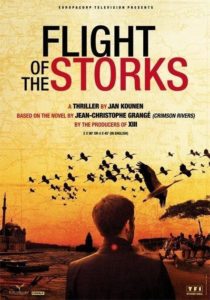 Throughout my life as a cinematographer and reader, I am always apprehensive when I go to see a film adaptation of a book I liked. Although they belong to different languages, hardly a bad book will come out a good movie. The reverse is more likely to happen, although I have seen terrible adaptations of important books. So it was a pleasant surprise to watch “Flight of the Storks” (FRA/GER, 2013).
Throughout my life as a cinematographer and reader, I am always apprehensive when I go to see a film adaptation of a book I liked. Although they belong to different languages, hardly a bad book will come out a good movie. The reverse is more likely to happen, although I have seen terrible adaptations of important books. So it was a pleasant surprise to watch “Flight of the Storks” (FRA/GER, 2013).
A few months ago, when I read the book “Flight of the Storks” (“Le vol des cigognes”), a novel by French writer Jean-Christophe Grangé, I was impressed by the density of the plot and the richness of novel’s details. While reading, I already imagined what a film based on this book would be like. Researching a little more, I discovered that his second novel “The Crimson Rivers” (“Les rivières pourpres”) had also been adapted for cinema in 2000, with Jean Reno and Vincent Cassel.
So imagine my surprise when I came across “Flight of the Storks” while surfing the Amazon Prime movies. The story shown in the film was quite faithful to the book, although I noticed some simplifications and absences. Of course, this is due to the process of adapting literary language to cinema. Later, I discovered that the film was originally made in the form of a two-episode miniseries, with a total duration of three and a half hours, being condensed to a two-hour and five-minute compact.
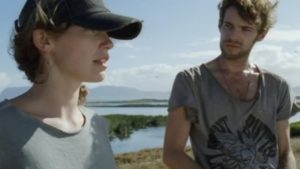 Jonathan Anselme (Harry Treadway), a young English researcher, is hired by Max Bohm (Danny Keogh) to do a very special job. Max was a friend of Jonathan’s family, an amateur ornithologist with special attention to storks. These birds follow a migratory cycle traveling a long way between South Africa and Switzerland, with some strategic stops along the way.
Jonathan Anselme (Harry Treadway), a young English researcher, is hired by Max Bohm (Danny Keogh) to do a very special job. Max was a friend of Jonathan’s family, an amateur ornithologist with special attention to storks. These birds follow a migratory cycle traveling a long way between South Africa and Switzerland, with some strategic stops along the way.
When hiring the young man, Max reported that he was concerned about the decrease of a certain group of birds that he had been following for years. Knowing the places where the birds stopped to rest, he had hired people to observe them and report some unusual fact. Despite not being a professional in the field, Jonathan found the work interesting, especially from Max, with whom he had good relations.
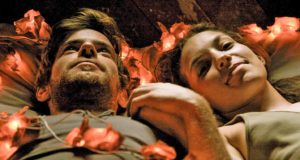 But when the young man arrived at Max’s house, he discovered his friend is dead, inside one of the property’s several stork nests. The police find that the cause of death was natural, due to heart problems and frees Jonathan, who decides to fulfill the mission requested by his friend.
But when the young man arrived at Max’s house, he discovered his friend is dead, inside one of the property’s several stork nests. The police find that the cause of death was natural, due to heart problems and frees Jonathan, who decides to fulfill the mission requested by his friend.
As he travels to Bulgaria, to the stork’s stopping point, Swiss inspector Hervé Dumaz (Clemens Schick) investigates Max’s cloudy past, discovering that he was a military man and had been in the service of the UN in the Democratic Republic of Congo. After returning from that mission, he lived a secluded life and despite not showing off, he had made millionaire donations to the humanitarian institution Doctors of the World.
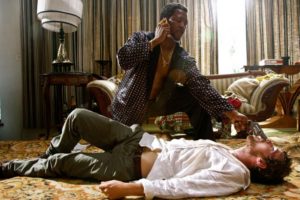 Jonathan’s journey, in turn, begins with tribulations. Received in Sofia by a lively Bulgarian, he discovers that the young gypsy who watched the storks was found dead, his heart removed surgically. When they go to the gypsy camp where the young man lived, an assassin kills the guide and the doctor with whom Jonathan was looking for information. Although he has never fought before, the young man is forced to kill the murderer to save his life.
Jonathan’s journey, in turn, begins with tribulations. Received in Sofia by a lively Bulgarian, he discovers that the young gypsy who watched the storks was found dead, his heart removed surgically. When they go to the gypsy camp where the young man lived, an assassin kills the guide and the doctor with whom Jonathan was looking for information. Although he has never fought before, the young man is forced to kill the murderer to save his life.
Jonathan continues his journey, wanting to get rid of that nightmare, and goes to Israel, where he discovers that the local observer was also murdered. He meets Sarah Gabbor (Perdita Weeks), the deceased’s sister, and his information leads the young woman to want to know more about her brother’s death.
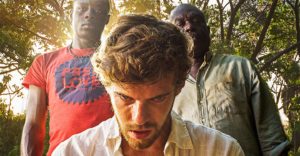 The killer keeps hunting Jonathan, who narrowly escapes death, and is increasingly intrigued and determined to discover the mystery that links the storks with all these deaths – in addition to the threat to his own life. The answers will be found in Congo, where he had lived until he was six, when his entire family had been killed in a hitherto unclear fire.
The killer keeps hunting Jonathan, who narrowly escapes death, and is increasingly intrigued and determined to discover the mystery that links the storks with all these deaths – in addition to the threat to his own life. The answers will be found in Congo, where he had lived until he was six, when his entire family had been killed in a hitherto unclear fire.
The plot is complex and the viewer needs to be attentive to follow the details and understand the whole story. Certainly the complete miniseries would facilitate understanding better, but the film editing is well done, allowing the viewer to follow all the protagonist’s odyssey, as well as the parallel stories.
 An interesting aspect, which leads the viewer to identify with the protagonist, is that the character is not the traditional hero, martial arts master and expert sniper. On the contrary, he is a shy and confused scholar, who has no idea of the confusion he is in, although he grows determined to discover the truth behind the facts.
An interesting aspect, which leads the viewer to identify with the protagonist, is that the character is not the traditional hero, martial arts master and expert sniper. On the contrary, he is a shy and confused scholar, who has no idea of the confusion he is in, although he grows determined to discover the truth behind the facts.
Interestingly, despite being based on a French book and produced by European companies, the film is spoken in English, with a multinational cast. The central couple, Harry Treadway and Perdita Weeks would return to work together on the series Penny Dreadful. A brief but important appearance is Rutger Hauer, Blade Runner’s eternal android.
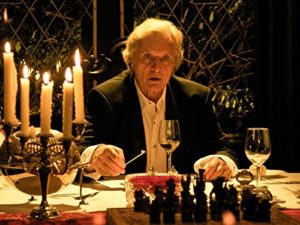 I always enjoy to recommend a movie or a book that I liked, and this is the case of “Flight of the Storks”. In attention to those who always ask where to find my recommendations, this film is available on Amazon Prime with original audio and subtitles in Portuguese. And for those who were interested in the miniseries, it is possible to buy it with Dual Blu-Ray Box in online stores.
I always enjoy to recommend a movie or a book that I liked, and this is the case of “Flight of the Storks”. In attention to those who always ask where to find my recommendations, this film is available on Amazon Prime with original audio and subtitles in Portuguese. And for those who were interested in the miniseries, it is possible to buy it with Dual Blu-Ray Box in online stores.

